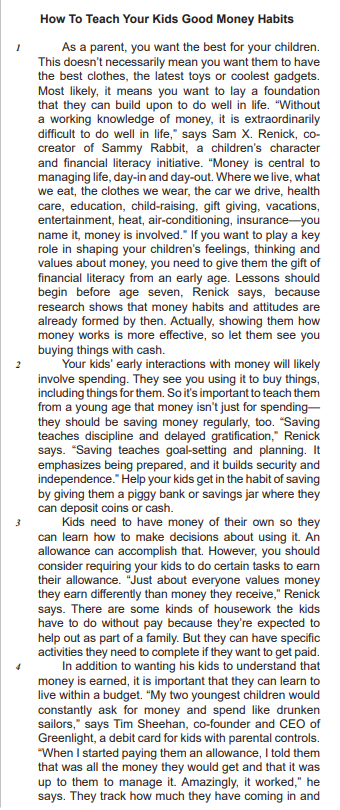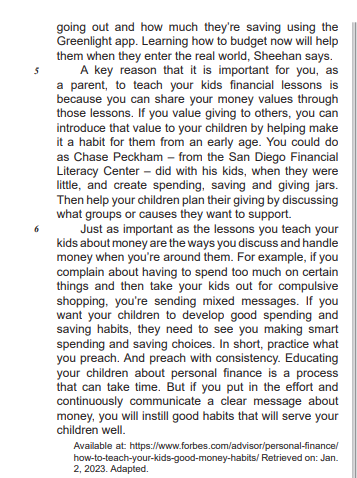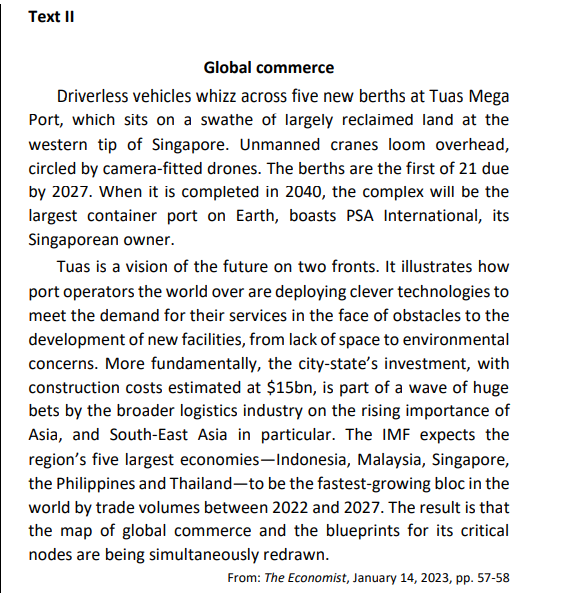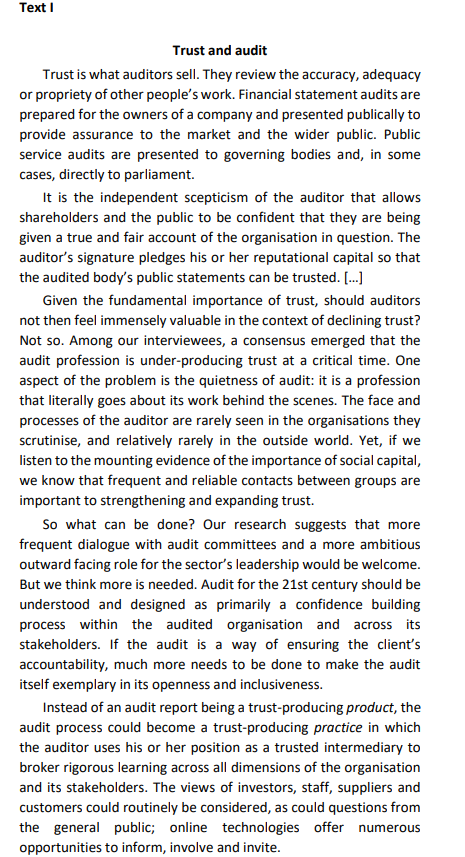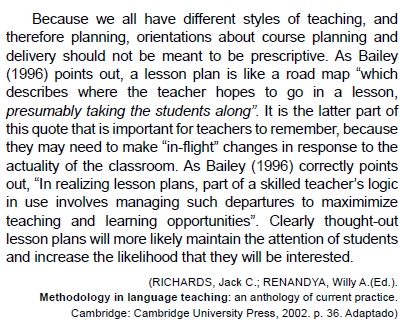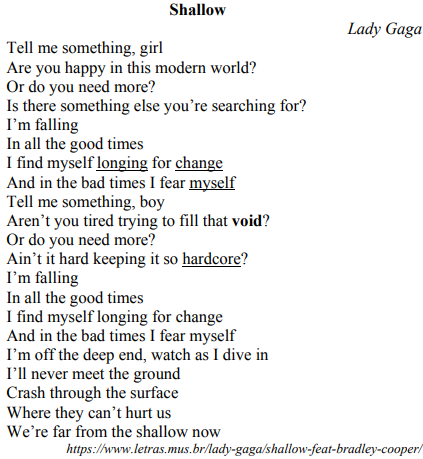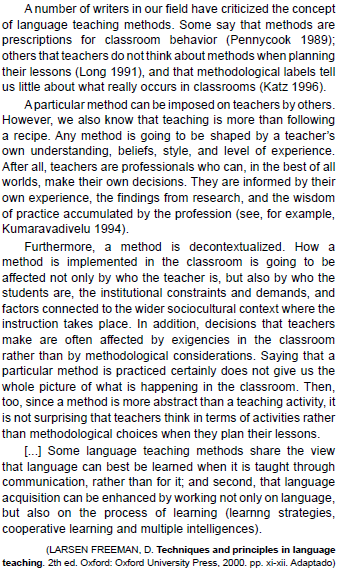In the passage of paragraph 3, “An allowance can accomplish that. However, you should consider requiring your kids to do certain tasks to earn their allowance”, the term “however” establishes the idea of
The use of the verb “loom” in “Unmanned cranes loom overhead” (1st paragraph) helps build an atmosphere that is rather
“Whereas” in “A computer is built from static parts, whereas your brain constantly rewires itself as you age and learn” introduces a(n):
According to the author, explaining the brain as a computer is:
Here’s why we’ll never be able to build a brain in a computer
It’s easy to equate brains and computers – they’re both thinking machines, after all. But the comparison doesn’t really stand up to closer inspection, as Dr. Lisa Feldman Barrett reveals.
People often describe the brain as a computer, as if neurons are like hardware and the mind is software. But this metaphor is deeply flawed.
A computer is built from static parts, whereas your brain constantly rewires itself as you age and learn. A computer stores information in files that are retrieved exactly, but brains don’t store information in any literal sense. Your memory is a constant construction of electrical pulses and swirling chemicals, and the same remembrance can be reassembled in different ways at different times.
Brains also do something critical that computers today can’t. A computer can be trained with thousands of photographs to recognise a dandelion as a plant with green leaves and yellow petals. You, however, can look at a dandelion and understand that in different situations it belongs to different categories. A dandelion in your vegetable garden is a weed, but in a bouquet from your child it’s a delightful flower. A dandelion in a salad is food, but people also consume dandelions as herbal medicine.
In other words, your brain effortlessly categorises objects by their function, not just their physical form. Some scientists believe that this incredible ability of the brain, called ad hoc category construction, may be fundamental to the way brains work.
Also, unlike a computer, your brain isn’t a bunch of parts in an empty case. Your brain inhabits a body, a complex web of systems that include over 600 muscles in motion, internal organs, a heart that pumps 7,500 litres of blood per day, and dozens of hormones and other chemicals, all of which must be coordinated, continually, to digest food, excrete waste, provide energy and fight illness.[…]
If we want a computer that thinks, feels, sees or acts like us, it must regulate a body – or something like a body – with a complex collection of systems that it must keep in balance to continue operating, and with sensations to keep that regulation in check. Today’s computers don’t work this way, but perhaps some engineers can come up with something that’s enough like a body to provide this necessary ingredient.
For now, ‘brain as computer’ remains just a metaphor. Metaphors can be wonderful for explaining complex topics in simple terms, but they fail when people treat the metaphor as an explanation. Metaphors provide the illusion of knowledge.
(Adapted from https://www.sciencefocus.com/future-technology/can-we-build-brain-computer/ Published: 24th October, 2021, retrieved on February 9th, 2022)
The title of the text implies that the author will:
Based on the text, mark the statements below as TRUE (T) or FALSE (F).
( ) Unlike a computer, it is hard for our brain to classify objects according to a specific purpose.
( ) The author rules out the possibility that computers may emulate the human brain someday.
( ) The brain adapts as one both matures and becomes more knowledgeable.
The statements are, respectively:
The passage in which the verb phrase indicates a necessity is:
The underlined phrase in “orientations about course planning and delivery should not be meant to be prescriptive” (line 3)
In the sentence “And the store doesn’t accept cash, just good deeds.” (paragraph 1), the word deeds means
Choose the alternative that correctly substitutes next to in the sentence “...about the rules when sitting next to the emergency exit…” (paragraph 2).
The discourse markers Furthermore and In addition, which introduce new sentences in the third paragraph, can be correctly replaced by
Collocation is the way in which words co-occur – combinations which, through custom and practice, have come to be seen as normal and acceptable. An acceptable collocation in the English language is being correctly used in alternative
The Last Kingdom
The Last Kingdom is a contemporary story of redemption, vengeance and self-discovery set against the birth of England. The series combines real historical figures and events with fiction, retelling the history of King Alfred the Great and his desire to unite the many separate kingdoms into what would become England.
Set in the 9th century AD, many of the separate kingdoms of what we now know as England have fallen to the invading Vikings, only the great Kingdom of Wessex stands defiant under its visionary King Alfred the Great. It is the last kingdom. Against this turbulent backdrop lives Uhtred. Born the son of a Saxon nobleman, he is orphaned by the Vikings and then kidnapped and raised as one of their own. Forced to choose between the country of his birth and the people of his upbringing, his loyalties are ever tested. What is he — Saxon or Viking? On a quest to claim his
birthright, Uhtred must tread a dangerous path between both sides if he is to play his part in the birth of a new nation and, ultimately, recapture his ancestral lands.
The Last Kingdom is a show of heroic deeds and epic battles but with a thematic depth that embraces politics, religion, warfare, courage, love, loyalty and our universal search for identity. Combining real historical figures and events with fictional characters, it is the story of how a people combined their strength under one of the most iconic kings of history in order to reclaim their land for themselves and build a place they call home.
Adapted from https://www.bbcamerica.com/shows/the-last-kingdom/about
Mark the alternative that LACKS the correct synonym for the underlined word.

